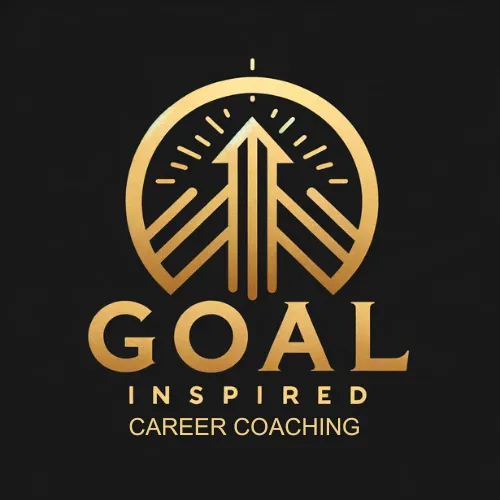CAREER BREAK : How To Explain Gaps in Employment on your Career Documents and in your Interview
.png)
Don’t be apologetic about your work history!
Don’t be ashamed about taking time off!
Don’t be discouraged if a few companies are not interested in your candidacy, or don’t respond.
A No Gap Policy May Be A Red Flag
.png)
If a company with a ‘no gap’ policy could be the signal to having horrible HR policies – horrible vacation, sick leave, time off and micromanaging policies - bosses who question you each time you take a sick day.
This could be a red flag signal and you shouldn’t want to work for them anyway.
Reasons for Employment Gaps
There are many valid reasons for employment gaps that should be communicated and explained at some stage of the job searching/hiring process. Some are:
- Caring for a sick family member
- Caring for a young child
- Pursuing further education, professional training, going back to school
- Medical or health issues
- Taking time off to relocate and find new employment
- Trying to start a business or consulting career
- Laid off due to downsizing, and you had difficulty finding a job after
- You were actively searching but were being selective in your job search and waiting to find the right fit.
- You were career pivoting to a new industry, to a new role or both.
What is the data saying? Understanding some sentiments around career breaks
LinkedIn conducted a global survey which uncovered how hiring managers perceive career breaks, especially for women. The data shows:
- 64% of women have experienced a career break at some point in their career with top reasons including parental leave (22%), medical leave (17%) and mental health reasons (14%).
- In January 2022 on LinkedIn, 70% of career break-related searches and 67% of career break-related posts globally came from female members.
- Women are taking longer to re-enter the workforce. In the US, there was a 39% increase in the length of time women in the US took a career break.
Career breaks are valuable in assessing your priorities and work-life balance
A career break helps you to gain new perspective and figure out what you really want from life.
It can rejuvenate you and allow you to restart your career.
While you are making your assessment, don't be afraid to discuss your career break.
Think about, discuss and highlight the positive aspects of your career break.
You can gain many valuable personal development skills.
Keep your confidence high and do not undervalue your worth and undersell yourself because you took a break.
Use this time to value and sell your soft and personal development skills.

Is there a good time to explain your career gap?
The best time to explain your career gaps is in the interview. However, if you are concerned, you can use a cover letter. You may also be asked to explain gaps in an online application.
The main goal of your job application and your resume is to get you an interview.
Once you get to the interview, if asked about the gaps, be open, honest, and provide further explanations.
An interview provides advantages that written responses don’t afford. You get the opportunity to gauge interviewers' reactions, and you can decide how much to share based on their responses.
Regardless of the mode of communication, be clear, direct and don’t provide too much information.
Explaining gaps in employment can be intimidating, but once you know how to communicate them, it gets easier.
You need to be transparent and comfortable with your answer.
Here are three general principles to explaining Resume Gaps
1. Explain the situation clearly and succinctly. Provide core details only, not the entire story and side details.
2. Assure then that the situation ended, and won’t pose any problems when you get hired and you are 100% committed and ready to take on your new assignment
3. Bring back the focus to the opportunity at hand by reiterating your interest in the position that you are applying for.
.png)
Gap Explanation on the Job Application and Cover Letter (if required)
The job application may ask you to explain any gaps in your employment.
Writing too much without the ability to offer further explanations may be more harmful than helpful so limit your explanation to one or two sentences for each gap in employment on your job application and cover letters
You can draw their attention to the gap by using a cover letter. This gives you the opportunity to tell the full story in a separate document which will not distract the flow of the resume.
.png)
Gap Explanation on the Resume
Your resume should be written in reverse chronological order (meaning your most recent job is featured first).
Dates: Some persons say list years instead of months for previous positions to cover up the gap. (e.g., “2014-2015”). Do not do this trick because it can signal that you are hiding something. Writing duration as 2014-2015 can also be interpreted as one month.
If the gaps are short, you do not need any explanation but for long gaps more than 6 months, put the durations, and a one-line explanation (“I took a hiatus from work to care of a sick child). Multiple gaps may be a problem, but if called for an interview, be prepared to explain them.
If the gap is ‘to further your education or professional development,’ create projects under the institution and write about those experiences.
Boost your confidence
If you are called for an interview, there is something in your resume and experience that the client likes, so be transparent. You will not lose the job for being honest, you will lose the job if you appear to be hiding something.
Display energy and explain your current career gap. Explain that you are being selective about the jobs you want and are focused on ensuring that you find the best fit for your long-term career objectives and you are not willing to take the first job.
Don’t give the appearance that you have been job searching for an extended period unless there are unusual circumstances such as the PANDEMIC.
Some gaps are easier to explain. For example, if your gap is health or travel related, the interviewer will easier accept that you haven’t had any interviews.
Prepare and Communicate
Action: Write your sample communication messages while you are preparing for your job Search.
If you are having challenges in crafting your messages, you may need help.
Please contact Yvonne Robinson https://goalinspiredcareercoaching.com/lets-connect
or send an email to: [email protected]


Hi,
I am Yvonne Robinson Jackson. As a past university professor and teacher, technical recruiter and director of recruiting, now career advancement coach.
Are you having problems expressing your achievements on your resume? Are you not getting any interviews with the resume that you are submitting for jobs?
I can help you. I teach you to write your own WINNING RESUME.
If you would like to know how to tell your career story , please let me know.
If you do not have a clear plan and strategy for advancing in your career or a clear vision of where you want to go, I will work with you until you achieve your results and your transformation.
Send me a message and let’s talk about it.
https://goalinspiredcareercoaching.com/lets-connect
Email: [email protected]
“𝑮𝒊𝒗𝒆 𝒂 𝒎𝒂𝒏 𝒂 𝒇𝒊𝒔𝒉, 𝒂𝒏𝒅 𝒚𝒐𝒖 𝒇𝒆𝒆𝒅 𝒉𝒊𝒎 𝒇𝒐𝒓 𝒂 𝒅𝒂𝒚. 𝑻𝒆𝒂𝒄𝒉 𝒂 𝒎𝒂𝒏 𝒕𝒐 𝒇𝒊𝒔𝒉, 𝒂𝒏𝒅 𝒚𝒐𝒖 𝒇𝒆𝒆𝒅 𝒉𝒊𝒎 𝒇𝒐𝒓 𝒂 𝒍𝒊𝒇𝒆𝒕𝒊𝒎𝒆,” - 𝑴. 𝑳𝒐𝒂𝒏𝒆
